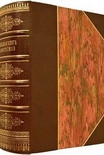The Wrecker, Clive Cussler [book club suggestions .TXT] 📗

- Author: Clive Cussler
Book online «The Wrecker, Clive Cussler [book club suggestions .TXT] 📗». Author Clive Cussler
“Did Eric recommend Union?”
“Of course. I had sent him ahead to conduct the survey. He knew the river bed and he knew Union. Why are you asking all this?”
The tall detective looked the elderly engineer in the eye. “You appeared troubled in Mr. Hennessy’s car last night after the banquet. Earlier, when we were down at the lodge, you were staring long and hard at the bridge piers.”
Mowery looked away. “You don’t miss much, do you, Mr. Bell? ... I didn’t like the way the water flowed around them. I could not pin down why—still can‘t—but it just looked different than it should.”
“You have an instinct that something is wrong?”
“Perhaps,” Mowery admitted reluctantly.
“Maybe you’re like me that way.”
“How so?”
“When I’m short on facts, I have to go on instinct. For instance, the fellow who shot me last night could have been a robber who followed Preston Whiteway onto this train intending to knock him on the head and take his wallet. I believe I recognized him as a known assassin. But I have no hard facts to say he wasn’t looking to make easy money. Whiteway was visibly intoxicated and therefore defense-less, and he was dressed like a wealthy gentleman likely to be carrying a big roll in his pocket. Since the ‘robber’ escaped, those are my only facts. But my instinct suggests that he was sent to kill me and mistook Whiteway for me. Sometimes, instinct helps put two and two together . . .”
This time, when Mowery tried to look away, Bell held him with the full force of his compelling gaze.
“It sounds,” Mowery muttered, “like you want to blame Eric for something.”
“Yes, it does,” said Bell.
He sat down, still holding the old man’s gaze.
Mowery started to protest, “Son . . .”
A wintery light in Bell’s blue eyes made him reconsider. The detective was no man’s son but his own father’s.
“Mr. Bell . . .”
Bell spoke in cool, measured tones. “It is curious that when I remarked that we need engineers, you countered that we need to trust engineers. And when I observed that you seemed troubled by the piers, you replied that I sounded as if I want to blame Eric.”
“I believe I had better have a talk with Osgood Hennessy. Excuse me, Mr. Bell.”
“I’ll join you.”
“No,” Mowery said. “An engineering talk. Not a detective talk. Facts, not instincts.”
“I’ll walk you to his car.”
“Suit yourself.”
Mowery grabbed his walking stick and heaved himself painfully to his feet. Bell held the door and led the way up the side corridor, helping Mowery through the vestibule doors between the cars. Hennessy was in his paneled office. Mrs. Comden was with him, reading in her corner chair.
Bell blocked the door for an instant.
“Where is Soares now?” he asked Mowery.
41
ONE HOUR LATER IN ST. LOUIS, A TELEGRAM ARRIVED AT THE basement hovel of an anarchist who had fled Italy and changed his name to Francis Rizzo. Rizzo closed the door on the Western Union messenger boy’s face before he opened the envelope. A single word was typed on the buff-colored form:
“Now.”
Rizzo threw on his hat and coat, caught a streetcar to a neighborhood where no one knew him, purchased a quart tin of kerosene, and boarded another streetcar, which carried him toward the Mississippi River. He got off and walked quickly through a warehouse district until he found a saloon in the shadow of the levee. He ordered a beer and ate a sausage at the free-lunch counter, eyes locked on the swinging doors. The instant that warehouse workers and carters barreled in, marking the end of the business day, Rizzo left the saloon and hurried along dark streets to the offices of the Union Pier & Caisson Company.
A clerk was locking up, the last man out. Rizzo watched from across the street until he was sure the offices were empty. Then, on a route plotted months earlier, he entered an alley that led to a narrow passage between the back of the building and the levee standing between it and the river. He tugged a loose board, pulled out a short crowbar he had stashed behind it, and pried open a window. He climbed in, found the central wooden staircase that led to the top of the three-story building, climbed it, and opened several windows. Then he pierced the kerosene tin with his pocketknife and started back down the stairs, splashing the volatile liquid on the steps. At the bottom, he lit a match, touched it to the kerosene, and watched the flames leap up the dry wood. He waited until he was sure that the wood itself had caught fire. Then he slipped back out the window and left it open to feed the draft.
ISAAC BELL RODE THE slow Snake Line switchback train down to the town of Cascade. Eric Soares had told Franklin Mowery that he might work late, as he often did. As usual, he would take his supper in the town, then would bunk down in one of the guard shacks beside the piers and start work early in the morning rather than waste time riding the train back up to the top.
When Bell got to the guard shacks, the detective discovered that the supposedly hardworking Soares had quit early.
No one knew where he had gone.
DOWN THE RIVER FROM the original town of Cascade, a shanty-and-tent city called Hell’s Bottom had sprung up. It owed its existence to the ironworkers, masons, and caisson miners who’d built the Cascade Canyon Bridge, the railroaders who’d laid the steep Snake Line from the town and its lowland railhead up





Comments (0)